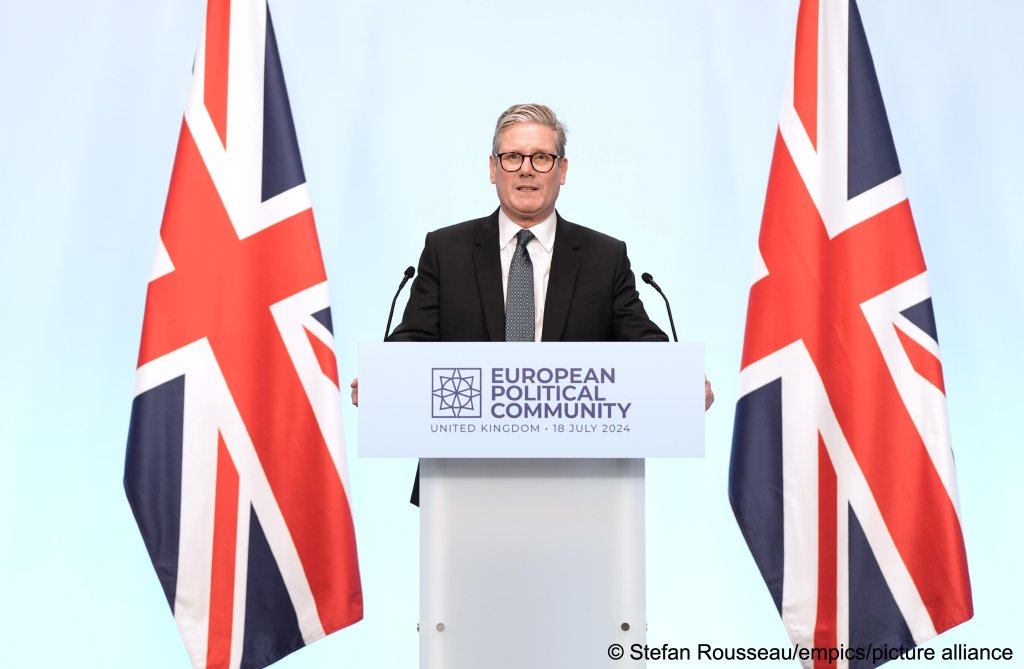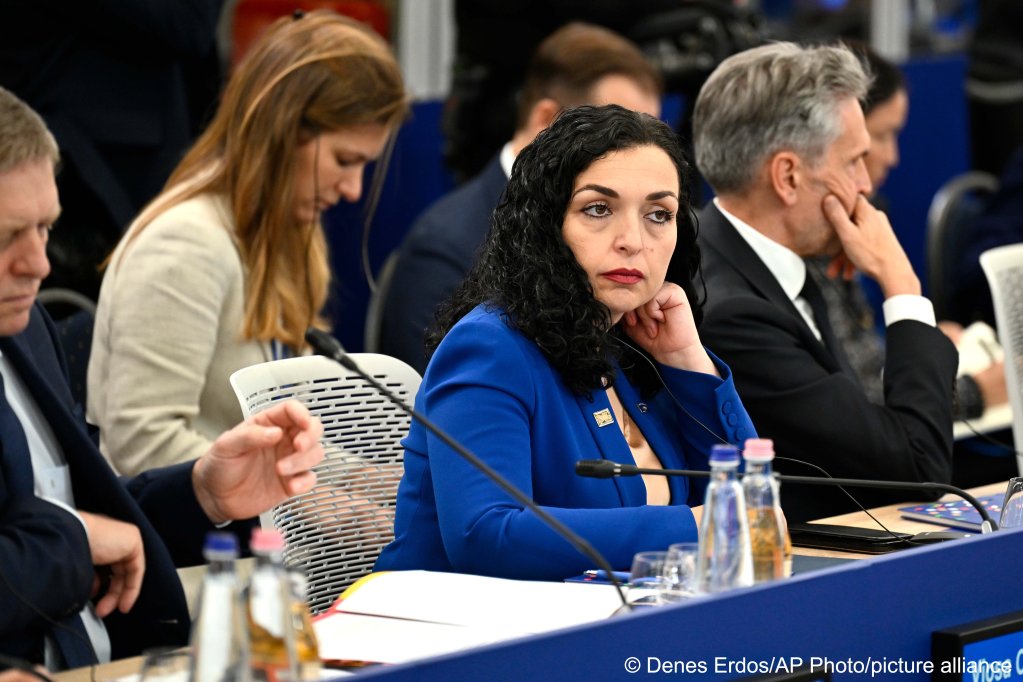British Prime Minister Keir Starmer will sign new agreements with Serbia, North Macedonia and Kosovo on Thursday to step up efforts against people smuggling.
The UK’s Prime Minister Keir Starmer intends to sign new agreements to combat people smuggling with the three Balkan states Serbia, North Macedonia and Kosovo on Thursday (November 7) while he attends a meeting of the European Political Community EPC in Hungary's capital Budapest.
The agreements come with an additional 75 million pounds of funding (around 90 million euros) for the UK Border Security Command, which has been tasked with combatting irregular migration, in particular targeting people smuggling gangs to prevent small boat crossings in the Channel.
The funding boosts around the same amount already in place, bringing the total spend up to around 180 million euros over the next two years. The British government in a statement said it "will boost state-of-the-art tech and see extra staff hired to lead enforcement and intelligence work in order to protect the UK’s borders."
While it was not clear where the extra funding was going to come from, the initial 75 million pounds are reported to have come after the new government scrapped the former government’s Rwanda scheme. British Home Secretary Yvette Cooper told Sky News that the other half is funding from last week’s budget.
During a speech in Glasgow earlier this week, Starmer also announced an increase in funding for Interpol, to the tune of around 6 million pounds (around 7.2 million euros) and a further 24 million pounds to tackle serious international crime, including drugs, firearms and fraud. Much of this crime, is thought to originate in the Western Balkans.
Read AlsoUK: Increased funding to crack down on people smugglers

Increase intelligence sharing
Since the Labour party took power in July this year, tens of thousands of migrants have crossed the Channel to the UK. Although the rhetoric under Starmer’s government regarding migration has slightly changed from that of the previous Conservative government, the aim of cracking down on small boat crossings, via dismantling the "vile" criminal gangs who transport people across the stretch of water separating the European continent from the British Isles, remains.
A spokesperson for the government said that "all European countries bear a responsibility to end the devastation caused by people smugglers and that lawful, international cooperation will be key to those efforts," reported the French news agency Agence France Presse (AFP).
Starmer said that a "criminal empire [is] operating on our continent, exacting a horrendous human toll and undermining our national security." The Prime Minister added that he wanted the UK to be "at the heart of the efforts to end the scourge of organized immigration crime."
The new agreements are intended to increase intelligence-sharing between countries, as well as allow for the exchange of expertise and cooperation, to try and "break" the gang's business models, the British government said in a statement.
Starmer is set to chair a meeting at the EPC in which he will call on European partners to identify "new ways to reduce irregular migration across the continent," continued the statement.
Read AlsoEastern European leaders double down on anti-migrant rhetoric

Immigration crime likened to terrorism
The agreements follow interventions made by the Prime Minister at the Interpol Conference in Glasgow this week, in which the British leader "warned immigration crime must be treated like terrorism." The agreements hope to "clamp down on organized immigration crime abroad," including in the three West Balkan states.
Starmer says that "concerted action" is needed to "reduce the number of deaths in the Channel as a result of dangerous and illegal small boat crossings." The British government said that in 2023, "almost 100,000 migrants transited through the Western Balkans last year," making the route "key" in preventing more people from entering the EU and the UK.
The British government intends the new agreements to "build on the existing partnership between the UK and Albania," which already includes "joint operational activity targeting the illicit finance flows that underpin the operations of the criminal gangs who seek to compromise Britain’s border." The UK already has agreements in place with Turkey too, to share intelligence in a bid to "disrupt people smuggling gangs," reported the BBC.
Read AlsoBosnia: More migrants taking the Balkan route once again
Increasing returns
Home Secretary Yvette Cooper added that she believed the new agreements would help the British government to "work across borders to map out what is happening and where, to break the business models of these unscrupulous gangs at source."
Cooper added that through this "intensified work, criminals will soon realize they have nowhere to hide."
The British government recently reported that it has returned 9,400 people this year who had "no right to be in the UK," including 2,590 enforced returns -- a 19 percent increase compared to the same period in 2023.
Government data also shows that nearly 32,000 people have crossed the Channel since the beginning of the year, most of them paying people smugglers to facilitate their journey. More than 5,000 people crossed in October alone.
